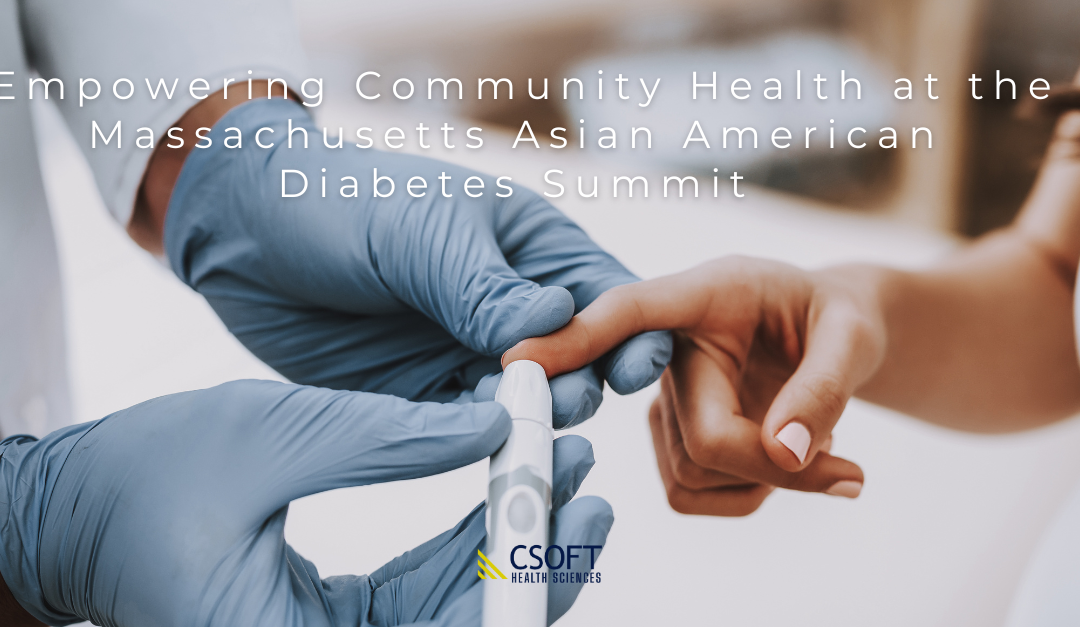The Massachusetts Asian American Diabetes Summit recently took place, addressing the specific needs of Asian American communities in Eastern Massachusetts concerning diabetes prevention and treatment. This significant event was held in May, a month dedicated to celebrating Asian American heritage and cultures. The summit highlighted the importance of inclusivity and community engagement in combating this critical health issue.
A Collaborative Effort for Better Health Outcomes
The summit was spearheaded by renowned leaders in diabetes care, including Dr. George King from the Joslin Diabetes Center, the Asian American Diabetes Initiative (AADI), and Harvard Medical School, alongside Dr. Tam Nguyen from Boston College. Their leadership was instrumental in organizing this event and ensuring its success. The summit brought together health providers, community leaders, and organizations to share insights and strategies for combating diabetes. The event commenced with a networking session and a light lunch, fostering connections among attendees.
Dr. Atif Adam highlighted the significant burden of diabetes on Asian Americans, emphasizing its prevalence and severe consequences. The Massachusetts Department of Public Health, represented by Ms. Jennifer Brais, discussed innovative statewide programs focused on diabetes prevention and management, highlighting their effectiveness in improving public health. Mr. Philip Chong of Quincy Asian Resources, Inc. (QARI) shared success stories of expanding Diabetes Self-Management Education and Support (DSMES) and the Diabetes Prevention Program (DPP) in Greater Boston and New York City, emphasizing community engagement. Ms. Sara Tan from Education, Advocacy, and Community Health (EACH) introduced a culturally tailored Diabetes Prevention Program for Chinese Americans, highlighting the importance of culturally sensitive health interventions.
The Importance of Community Engagement
Dr. Tam Nguyen highlighted that in Norfolk and Suffolk counties in Massachusetts, the rates of newly diagnosed Asian American diabetes patients are higher than the national averages. The growing Asian American population in these areas, driven by new arrivals and higher birth rates, contributes to the increasing rates. Addressing diabetes in these communities requires understanding the cultural contexts and health behaviors of recent immigrants. Engaging with communities and ensuring that their perspectives are heard is vital for sustained and targeted health interventions. Additionally, a multi-sectoral approach involving community-based organizations, businesses, payers, and lawmakers is essential to address the growing problem of diabetes in the Asian American community.
Pioneering Studies and Tailored Interventions
The Joslin Diabetes Center has conducted pioneering studies on diabetes in Asian American communities, revealing unique challenges faced by this group. These studies have shown that Asian Americans are at a higher risk for developing type 2 diabetes at a lower body mass index (BMI) compared to other ethnic groups. This highlights the need for tailored screening guidelines and interventions that consider specific physiological and genetic factors prevalent in these communities. The center advocates for a lower BMI threshold for diabetes screening in these communities to enable earlier detection and intervention, which is crucial for improving management and outcomes and preventing complications such as cardiovascular disease, kidney failure, and neuropathy associated with diabetes.
“Transforming diabetes management needs thinking outside of the box”
Dr. Tam Nguyen also highlighted innovative strategies discussed at the summit, saying, “I think there are a lot of low-hanging fruits we can take advantage of to better implement DPP and DSMES. To do that, we need to get on the same page, align workflow, and combine resources across key partners (i.e., Joslin AADI, S. Cove, QARI). Specifically, we have a unique opportunity to integrate effective and sustainable diabetes management and prevention programs into the S. Cove clinical arena, which can serve as a model of care for other clinics. Beyond that, to transform diabetes management and prevention in the wider Asian American community, we need to think outside of the box by leveraging AI technology and going downstream toward the youth.”
Shunee Yee’s Commitment
Shunee Yee, CEO of CSOFT Health Sciences and esteemed Trustee of the Joslin Diabetes Center, also attended the summit, demonstrating her commitment to improving health outcomes for diverse communities. CSOFT specializes in clinical trial localization and provides AI/ML-enabled medical translation services. Shunee’s involvement bridged the gap between innovative health solutions and the needs of Asian American populations, ensuring culturally sensitive and effective care.
